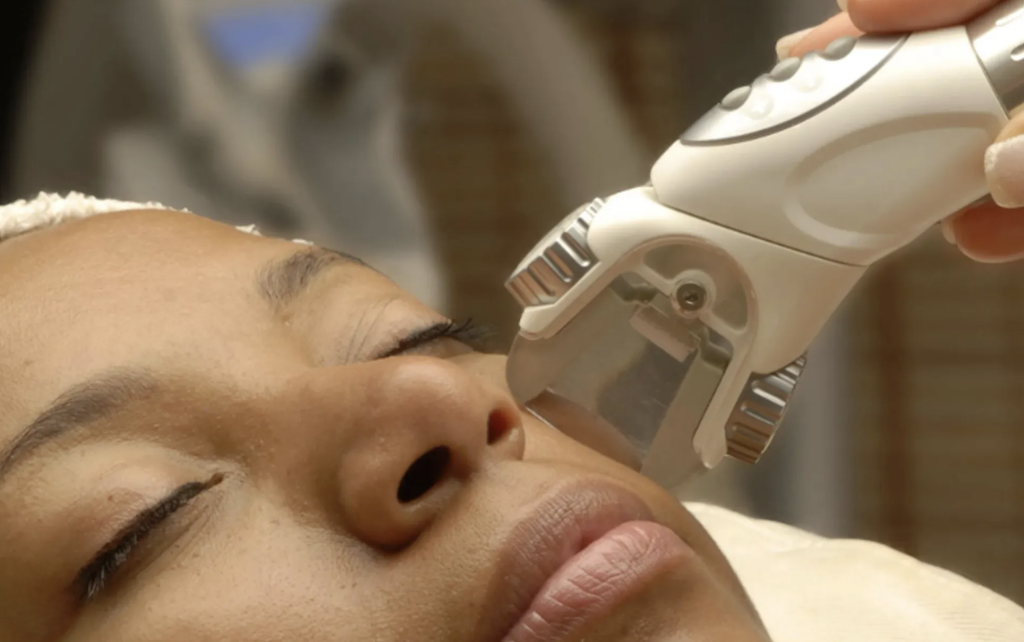According to studies, almost 5 million Americans are dealing with hyperpigmentation. And although most people tend to notice hyperpigmentation on their face, this skin complaint can occur on any part of the body. Several factors can trigger hyperpigmentation, including food, age, injury, sun exposure, and or hormonal influences. However, uneven skin pigmentation is often common among individuals with darker skin tones, mostly women. That isn’t to rule out the possibility of a man having hyperpigmented skin. In order to learn how to prevent and get rid of this skin complaint, you also need to understand what might be causing it in your case.
Sun Exposure and Hyperpigmentation
Studies show that excessive exposure to sunlight increases your probability of getting hyperpigmentation. When the sun’s UVA/UVB rays get to your skin, they disrupt the process of melanin production, leading to oxidative stress, which causes your skin to age prematurely/hyper-pigment. These darkened patches can often be found on your hands, neck, and or your face. Prevention is the best way to get rid of hyperpigmentation due to sun exposure. Experts recommend applying sunscreen on your skin, even on cloudy days. Whenever possible, avoid direct sun exposure, especially during the time of the day when it’s too hot. If you have to go out in the sun, wear appropriate clothing, including a hat, to help block the amount of sunlight your body is exposed to.
Food and Hyperpigmentation
Research suggests that your diet could prevent, minimize or trigger hyperpigmentation. Adding green vegetables such as spinach, sprouts, or broccoli to your diet is a great way to reduce oxidative stress. Fruits such as oranges, limes/lemons, and papaya, on the other hand, are a great way to acquire antioxidants which are excellent at preventing acne and inflammation. You want to avoid or minimize consuming foods that introduce estrogen into your body. These include but are not limited to black beans, chickpeas, and soy products. Keep in mind that although a proper diet might help prevent hyperpigmentation, if this skin complaint is already in existence, it might take a while to fade. Therefore, be patient with your skin. Experts might recommend laser pigmentation removal from qualified personnel if you prefer an immediate solution. Don’t forget to stay hydrated. Water helps hydrate and remove toxins from your skin, giving you glowing and youthful skin.
Uneven Skin Pigmentation Due to Age
As you grow older, the possibility of hyperpigmentation increases. Although the number of melanocytes on your skin decreases, the size of the remaining ones tends to increase. As a result, you will often notice pigmented spots, at times referred to as age spots, on your face, hands, and any other sun-exposed areas. If that’s the case for you, the dermatologist might recommend;
- Applying bleaching creams alone or in conjunction with retinoids. The downside to this method of treatment is that it might cause skin dryness or temporary itching for some individuals.
- Dermabrasion. With this treatment procedure, the expert will rapidly sand down the surface layer allowing the growth/appearance of new skin.
- Laser treatment. With this procedure, the melanocytes are destroyed without causing damage to the skin.
- Microdermabrasion. Although this procedure is quite similar to dermabrasion, it’s less aggressive. To achieve smoother skin and for the time being get rid of hyperpigmentation, you will have to get the procedure done for several months.
- Cryotherapy is also referred to as freezing. With this hyperpigmentation treatment, the expert applies liquid nitrogen on the hyperpigmented area to get rid of extra pigment.
- Chemical peel. This procedure involves the use of a chemical solution that helps remove the top layers of your skin, leaving you with smooth, young-looking skin. Keep in mind that you might have to undergo several treatments before you can completely get rid of the uneven skin pigmentation.
Luckily, although the procedures mentioned above might necessitate you to visit the dermatologist severally, you won’t have to worry about being admitted. The most important part is ensuring that the expert is licensed and well-trained in the treatment method you’ve settled for.
Uneven Skin Pigmentation and Hormones
According to experts, hormonal imbalance can be directly linked to hyperpigmentation, commonly referred to as chloasma or melasma. This is especially common among women with darker skin tones, where hormonal fluctuations cause excessive production of melanin. Individuals with melasma will often notice the dark patches on their upper lip or the forehead, particularly when they are on birth control or pregnant. Typically, if your hyperpigmentation is due to pregnancy, you might notice that your skin pigmentation starts to get back to normal once you’ve had the baby. However, if that doesn’t happen, or it’s due to birth control, you might have to consult an expert on how to go about it. In most cases, they will recommend using brightening skin-care products such as vitamin C and chemical peels/exfoliating acids.
Hyperpigmentation, Sickness and Medicine
Unfortunately, in some cases, a medical condition such as cancer or even some medicines such as antimalarial drugs and some antibiotics might be causing your skin to hyper-pigment. If that’s the case, you might have to discontinue the drugs. However, before you do, ensure that you first talk to your doctor to see if that’s okay and or whether they can offer an alternative. Remember, your health is more important than getting rid of hyperpigmentation.
Cuts, burns, bites, and acne can also cause your skin to hyper-pigment even after you heal. Although it can be quite frustrating, hyperpigmentation isn’t known to cause any immediate threat to the health of your skin. In some cases, if you’re patient enough, the problem might solve itself. In the event that you choose to seek treatment, exercising patience is crucial. Most importantly, ensure that the person administering treatment is trained and certified to avoid causing more damage to your skin, leading to more hyperpigmentation. Don’t forget to ask if there are any side-effects you might have to deal with if you choose any of the above procedures.

